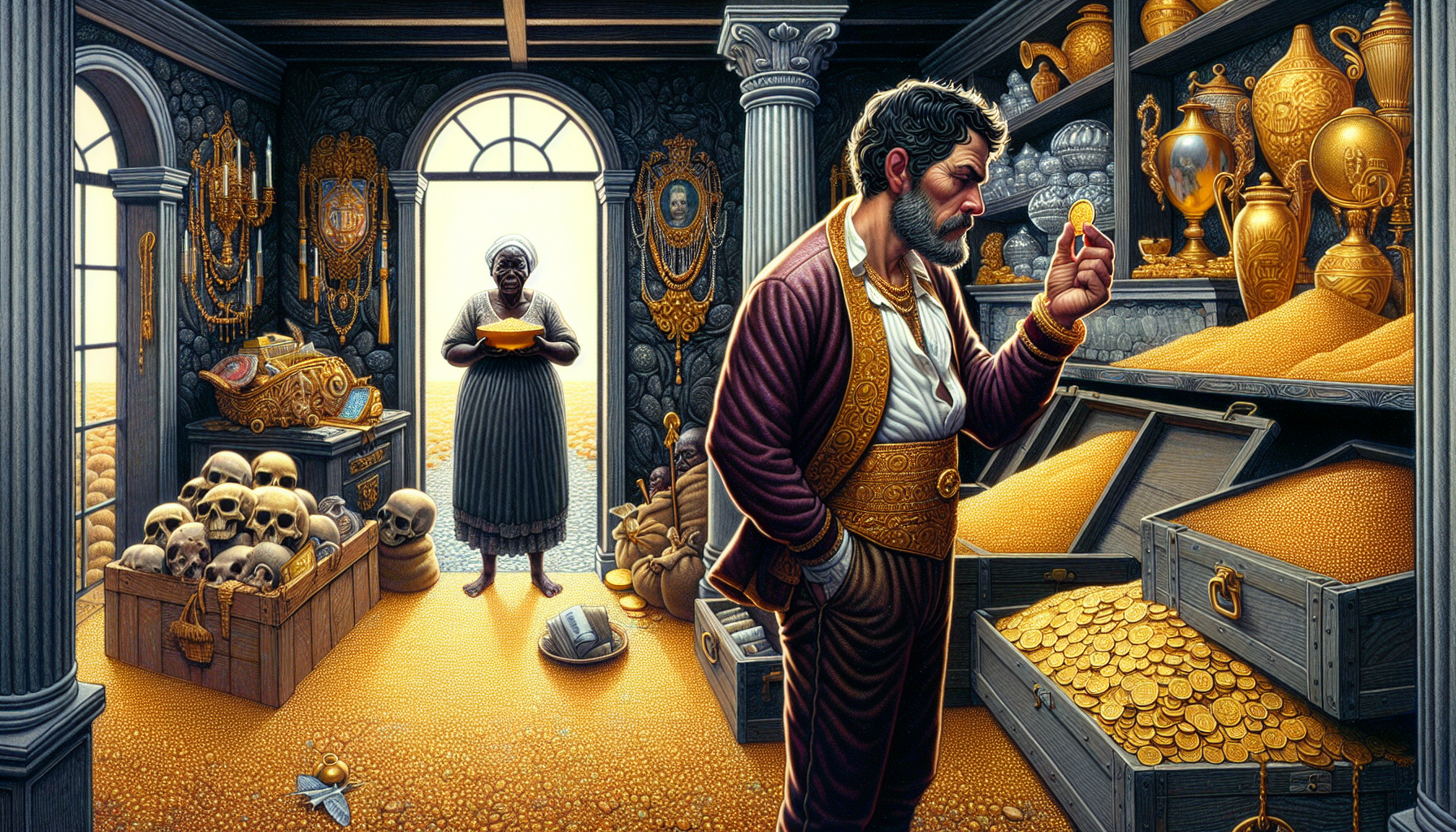
The turning point in the tale is marked by the protagonist’s decision to tear down his existing barns to build larger ones, aiming to store all his grains and goods. At this moment, material wealth becomes not just a means to an end but the end itself. The sheer folly of this is underscored by his total disregard for anything beyond earthly possessions.
What makes the story particularly striking is the dialogue he holds with himself: “And I will say to my soul, Soul, you have ample goods laid up for many years; relax, eat, drink, be merry.” Such words reveal his self-satisfaction and complacency, highlighting a disconnect not just from reality but also from any sense of community or ethical responsibility.
Indeed, the wisdom of the tale comes into play when it confronts the Rich Fool with the ultimate truth of his mortality. The irony of his situation is revealed in the divine response to his plans: “You fool! This night your soul is required of you, and the things you have prepared, whose will they be?” This rhetorical question emphasizes the transient nature of earthly treasures and the folly of prioritizing them over lasting spiritual values.
The parable serves as a crucial admonishment. It emphasizes that true fulfillment and security are not found in the accumulation of material wealth. Rather, they are grounded in values that nurture the soul and foster genuine connections with others. The sharp critique of greed held within these lines beckons the reader to reflect on their own life choices and priorities.
In navigating the complexities of financial prosperity, this story compels us to question the integrity and sustainability of our pursuit of wealth. Amidst contemporary societal pressures that often equate success with financial accumulation, the Rich Fool stands as a stark reminder of the ephemeral nature of material possessions compared to the enduring substance of relational and spiritual riches.

